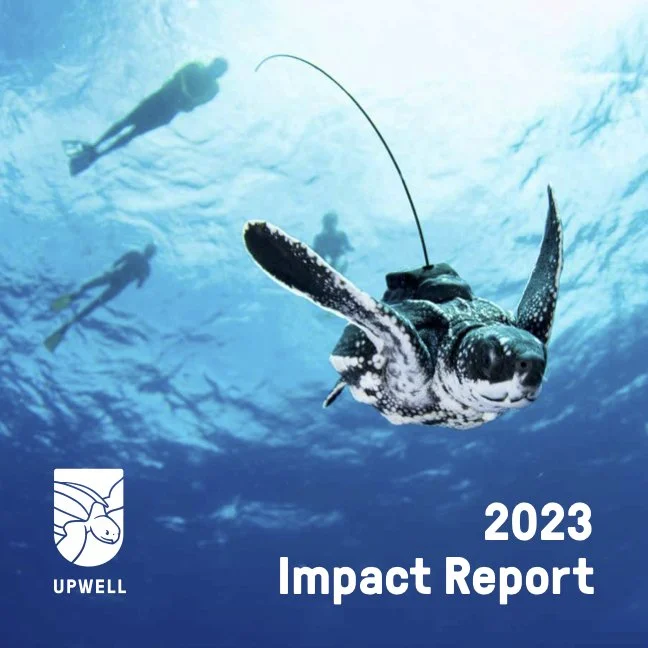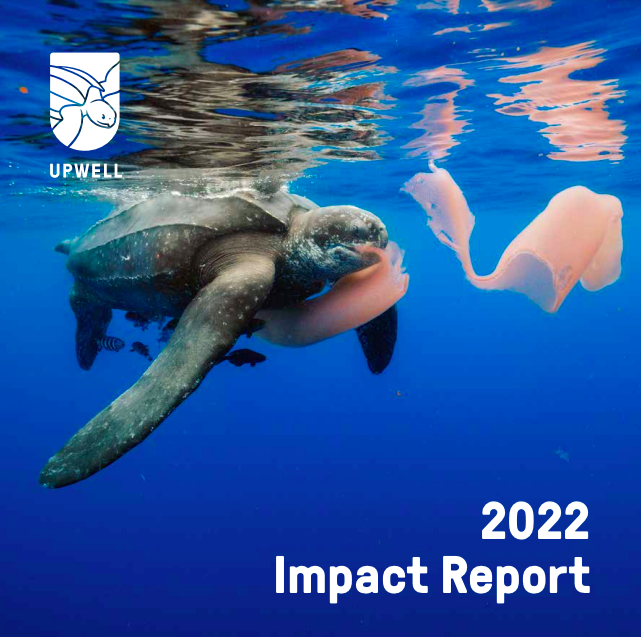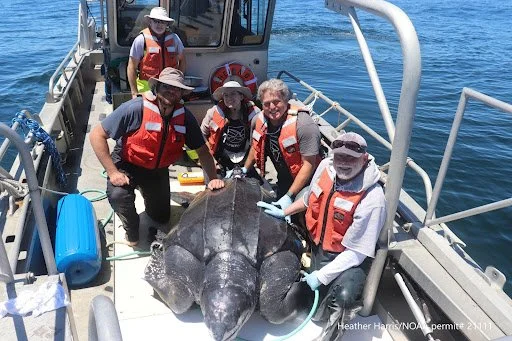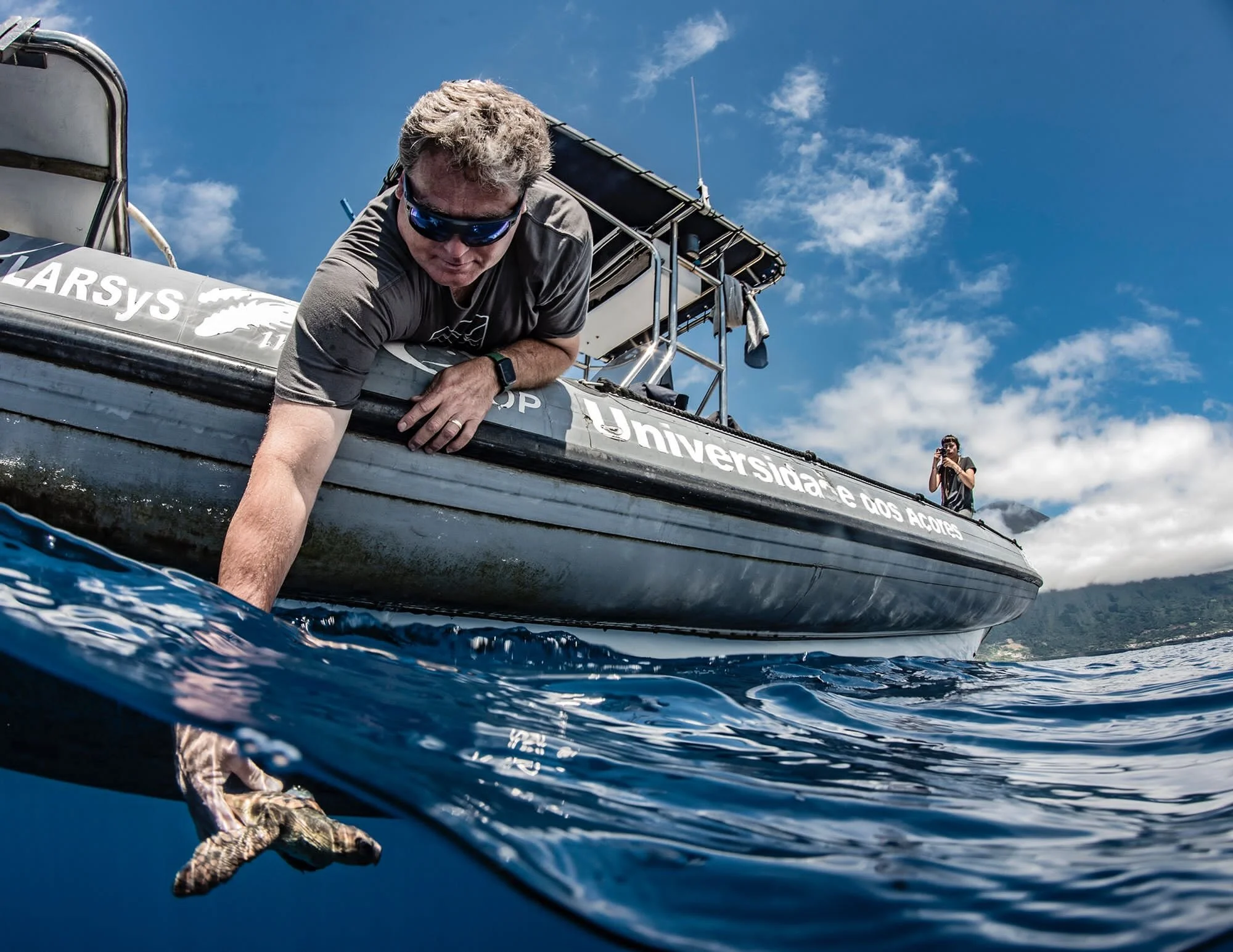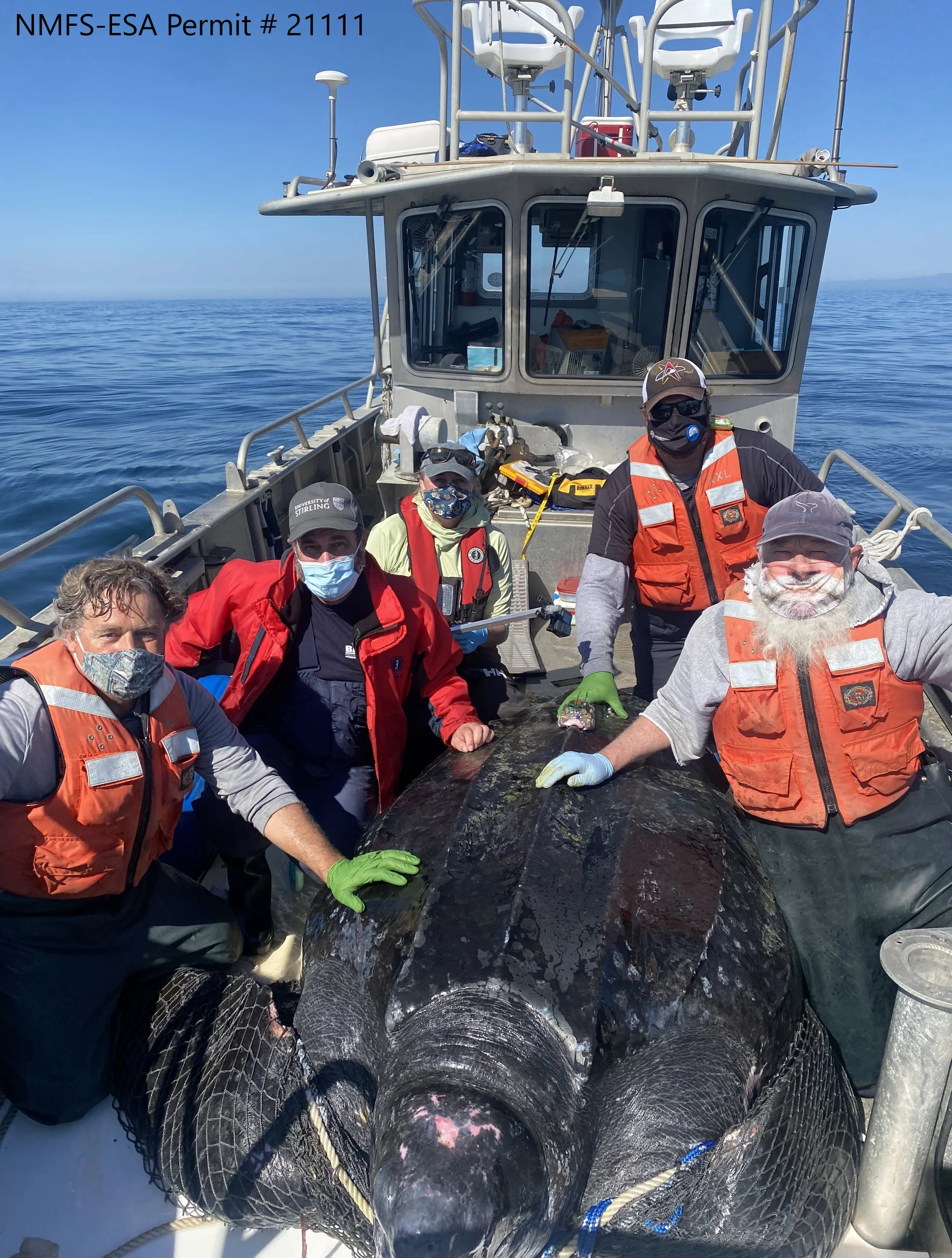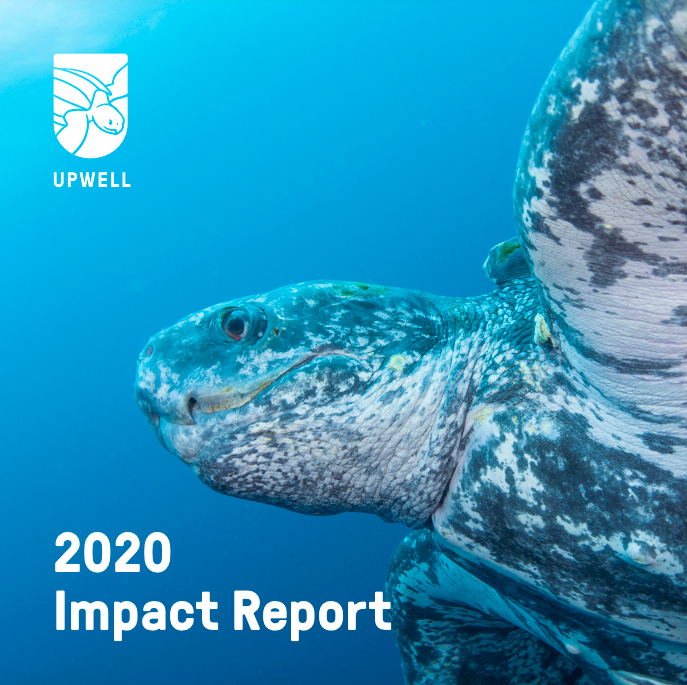2024
-
In 2024, Upwell
Tagged and released eleven 1-year-old leatherback turtles, in a thrilling new collaboration with the Thai Department of Marine and Coastal Resources and the Phuket Marine Biological Center.
Gained critical insights into the survival and movements of juvenile captive-reared Pacific loggerheads, tagging and releasing 12 turtles through a new partnership with Okinawa Churaumi Aquarium and the Sea Turtle Ecology Lab.
Broke our loggerhead tracking records, with 3 turtle’s whose tags transmitted for over 200 days, and one turtle who made the deepest loggerhead dives we have seen to date, down to 143 meters!
Tagged our first-ever hard-shelled turtle (a green!) on the US West Coast
Initiated preparations to carry out the first-ever aerial surveys for leatherbacks off New Zealand, seasonal foraging grounds for a subset of the West Pacific population. This work was carried out in partnership with New Zealand’s Department of Conservation, National Institute of Water and Atmospheric Research, and Monash University in Australia.
Created a species distribution model and accompanying risk management tool (TurtleWatch Australia) provides natural resources managers and fishers with near real-time predictions on leatherback presence and abundance.
Published four manuscripts on topics ranging from micro-satellite tags, to leatherback microbiota, to bycatch in the Pacific ocean.
2023
-
In 2023, We…
Reduced the risk of captive-reared juvenile leatherbacks developing mycotic dermatitis in the lab by incubating eggs under controlled conditions.
Contributed to a dataset that revealed that nesting female leatherbacks utilized a 12,694 square-kilometer area (4,900 square miles) off Florida as internesting habitat, ranging from Cape Canaveral to West Palm Beach.
Developed a population viability analysis (PVA) model to assess what level of leatherback entanglement in the NSW shark meshing program would put West Pacific leatherbacks at risk of regional extirpation.
Completed a study on comorbidities in cold-stunned sea turtles on the West Coast, compiling evidence that prolonged hypothermia provoked a cascade of health effects including pneumonia, bacterial gastroenteritis, and suspected sepsis.
Supported a necropsy workshop that examined 11 turtles (9 greens and 2 olive ridleys) that stranded between 2018 and 2023.
Partnered with fisher Mariano García and the Conservation Team at Sinaloa’s Interdisciplinary Regional Center for Integral Development (CIIDIR) to satellite tag a bycaught leatherback turtle
Tracked a turtle (who we named John, or João in Portuguese) from the Azores to mainland Portugal, the farthest eastward journey of any loggerhead ever tracked by our team which measured more than 1,000 miles (1,610 kilometers)!
2022
-
In 2022, We…
Collaborated with the Cayman Turtle Centre to deploy micro-satellite tags on 50 captive-reared green sea turtles between 1 and 3 years of age, releasing them in 2 different offshore locations
Partnered with the Georgia Sea Turtle Center to release 8 rehabilitated juvenile Kemp’s ridley sea turtles
Provided professional instruction on cold-stunned sea turtle response - developing guidelines for treating cold-stunned (hypothermic) sea turtles with members of NOAA’s West Coast Stranding Network.
Collaborated with the Loggerhead Marinelife Center to have Upwell’s Wildlife Veterinarian Dr. Heather Harris perform health assessments on 14 leatherbacks nesting in Florida.
Invested in building local capacity for detecting the presence of acoustically tagged leatherbacks by providing three acoustic receivers to partners for deployment off the Olympic Peninsula.
Showcased our work on NBC Nightly News with Lester Holt and on the Today Show. NBC reporter Kerry Sanders joined us out on the water to cover the release of the turtles tagged in collaboration with Florida Atlantic University.
Followed Ember, a juvenile loggerhead rehabilitated by the Georgia Sea Turtle Center from release in Florida across the Atlantic, almost reaching the Azores.
Doubled micro-satellite transmission strength and significantly improved leatherback tracking durations through the manufacturer’s addition of solar panels.
Launched a project investigating the microbiota living in and on juvenile leatherbacks and their role in leatherback health, immune function and disease. Upwell laboratory veterinarian Dr. Samantha Kuschke cultured samples collected from 14 turtles and eggs from 9 different nests and concluded that nest exposure was the most likely source of Fusarium spp. in the captive-reared leatherbacks.
2021
-
In 2021 we…
Recaptured one of the largest leatherbacks ever encountered off the California coast (weighing in at over 1,400 pounds!) and tracked his movements across the Pacific.
Refined micro-satellite tag design to yield longer transmission times in partnership with engineers in Canada and oceanographers in France.
Informed decisions on the opening of California’s 2021 Dungeness crab season, which helped fishers mitigate the risk of leatherback entanglement in fixed-line fishing gear.
Began to expand leatherback monitoring efforts in partnership with NOAA from California into the Pacific Northwest, starting with aerial surveys of critical foraging habitat.
Supported a first-ever training workshop focused on collecting sea turtle bycatch data, co-hosted by 10 artisanal fishers in Sinaloa.
Launched a new study to improve outcomes for cold-stunned olive ridley, loggerhead and green turtles on the US West Coast led by Upwell’s Wildlife Veterinarian Dr. Heather Harris.
Secured vessel traffic data for University of Maryland undergraduate student Melissa Vezard’s analysis of vessel and leatherback movements during the vulnerable inter-nesting phase when females remain concentrated in nearshore habitats. Findings indicated turtles were concentrated off the nesting beach and their turning angles were significantly associated with vessel exposure and speed.
Provided training on acoustic tag attachment techniques for researchers from Florida Atlantic University and the Loggerhead MarineLife Center and two acoustic tags for a new study on the subpopulation of Northwest Atlantic leatherbacks nesting in Florida.
2020
-
In 2020, We…
Conducted the first-ever satellite tracking study of juvenile leatherback movements with our project partner Dr. Jeanette Wyneken at Florida Atlantic University (FAU) in September 2020.
Published or participated in five new peer-reviewed publications
Collected 13 months of satellite tracking data on a leatherback sea turtle tagged in CA foraging grounds
Initiated the investigation of the viability of acoustic tags as a tool for long-term data collection after a leatherback turtle outfitted with an acoustic tag in Pacuare, Costa Rica by Dr. George Shillinger in 2019 passed an acoustic receiver off the coast of St. Petersburg, Florida.
Used the Sea Turtle Active Movement Model to create simulated dispersal trajectories of hatchlings from 10 key Northwest Atlantic leatherback nesting beaches
Incorporated over 780 fisheries observation records and 114 satellite tracks into the South Pacific Turtle Watch model
Presented the results of our Population Viability Analysis (PVA), a wildlife management tool for risk assessment that uses existing demographic data to determine the probability of extinction and guide species recovery.










